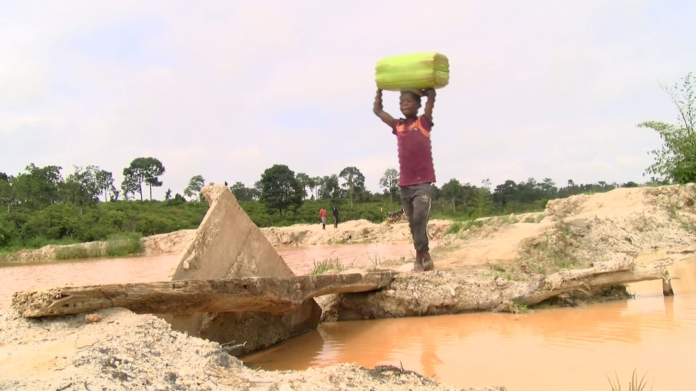Recently, there have been calls from various sectors of the public to ban ‘galamsey’ as a solution to the water crisis, deforestation, health hazards, and the looming security threats caused by illegal mining activities in parts of Ghana.
What’s missing in these calls is data supporting the ban on ‘galamsey’ as a viable alternative.
On the surface, the call seems reasonable, especially when health complications in some centers are linked to dangerous mining activities, as noted by some health practitioners.
At Laadi Centre for Peace Building and Security Analysis (LACPSA-GHANA), we believe this call represents a knee-jerk reaction and fails to address the core issues of ‘galamsey’ effectively.
We observe that there is a growing tendency to lump both legal and illegal mining under the term ‘galamsey,’ and the one-size-fits-all approach of banning ‘galamsey’ is inadequate.
Allowing this notion to persist could lead to further problems by attempting to solve one issue while exacerbating another, such as unemployment.
This would undermine the benefits of the regulated community mining concept and could disadvantage local communities and chiefs in favor of larger mining companies.
The community mining initiative was established for good reasons. Instead of a blanket ban, we must focus on enforcing existing laws and addressing illegal activities. A collective will to solve the problem, including naming and shaming offenders, is more effective than selective punishments.
It’s important to clarify that LACPSA-GHANA is committed to a peaceful and secure environment. If unsafe mining practices are causing havoc, we support measures to contain these activities. However, we argue that a ban on ‘galamsey’ alone lacks scientific and data-backed support to address the issues, whether temporarily or permanently.
Additionally, unregulated mining has destroyed forest cover, with significant security implications both locally and globally, including contributing to climate change and affecting food production. Thus, any proposed ban should be accompanied by detailed, sustainable solutions, including restoration of lost forest cover and agricultural potential.
To address these issues effectively, we need to ask:
- What has gone wrong?
- Are enforcement and regulatory bodies weak, allowing individuals to draw salaries without proper oversight?
- Are we prioritizing votes over environmental safety and the well-being of future generations?
- Do we acknowledge that some entities labeled as ‘galamsey’ are registered and practicing safe mining?
- Have we identified and shamed companies engaging in illegal and unsafe mining practices?
LACPSA-GHANA’s assessment highlights a culture of weak enforcement, institutional indiscipline, and lawlessness. We recommend not banning ‘galamsey’ but adopting a comprehensive approach to identify and address the real actors behind these issues.
We believe that a committed effort from all stakeholders in the mining value chain will address these challenges more effectively than a ban, which may not be sustainable. Community participation is crucial, as local ownership of solutions often leads to better outcomes.
Source: Akunkel Musah: Analyst; Security & Climate Change | Global Peace Campaigner


